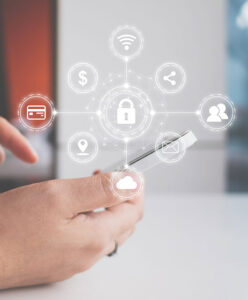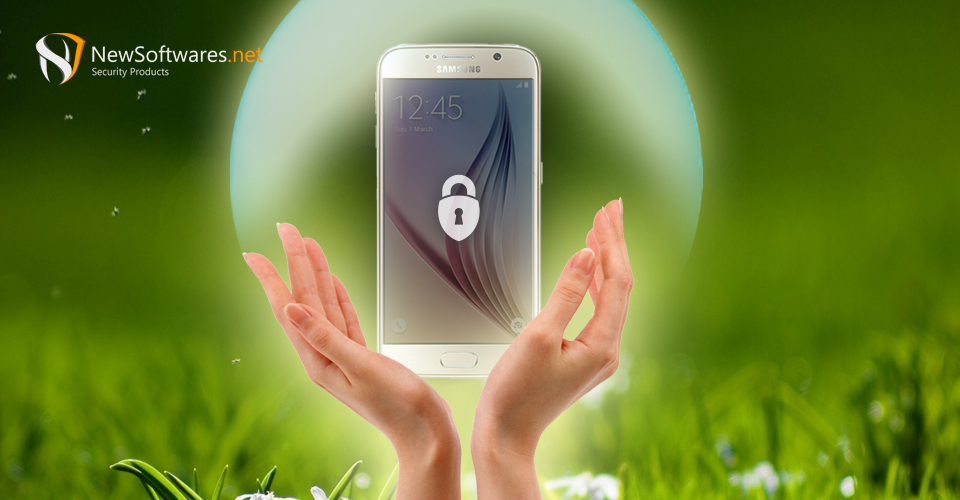Your smart phone is considered your best friend and your worst enemy at the same time – whether you like it or not. It can help you find the nearest café to alleviate your caffeine fix, catch up on the news while on to go or check the weather before heading out. Consequently, if your phone ends up in the wrong hands, you’re smart phone can reveal vital personal information about you, your contacts, location history, passwords, banking information and confidential documents. What’s more, even your social media accounts could be accessed with a simple tap of a finger if they are not secured with apps such as social media vault. It’s quite a scary thought to think that all your information can just leak out and you have no control over it. However, it’s not all gloom and doom, there are a few things you can do to ensure the security and privacy of your smart phone.

Lock down your phone:
 Simply putting a password, pin or pattern on your phone can make a huge difference. A pass lock is always the first line of defense against hackers who are more interested in obtaining your personal data rather than your phone. Newer iPhone and Android handsets will have an activation lock on them in the near future, preventing anyone from resetting your phone. However, users need to make sure that they setup their phone to enable auto lock with the least amount of delay. So that if your phone is to be ever lost or stolen, it would be locked.
Simply putting a password, pin or pattern on your phone can make a huge difference. A pass lock is always the first line of defense against hackers who are more interested in obtaining your personal data rather than your phone. Newer iPhone and Android handsets will have an activation lock on them in the near future, preventing anyone from resetting your phone. However, users need to make sure that they setup their phone to enable auto lock with the least amount of delay. So that if your phone is to be ever lost or stolen, it would be locked.
Never leave your phone unattended:
Can you imagine leaving your social security card on a bar table carelessly during a bathroom break? Consequently, you’re smart phone contains no less important information than your social security card. In fact, criminals are constantly seeking the unaware that just happen to leave his or her phone behind, be it at a restaurant or at a bar. Users need to establish best smart phone privacy practices. While at a restaurant or bar, always keep your smart phone in your pants pocket or in your purse.
Don’t let strangers use your phone:
Tourists can often approach locals asking to use their phone to make an emergency call back home. Most of them have genuine intentions while some have other tricks up their sleeve. Nonetheless, dial the phone number yourself and put the phone on speaker so you know what’s going on.
Encrypt your smart phone:
Today mostly all smart phones can be encrypted. Accordingly, encryption ensures your data’s privacy even if your stolen phone is unlocked by hackers. The data on your phone’s SD card will no longer be readable on other devices once you encrypt your phone – ensuring your sensitive data on your smart phone is never compromised.
Download from only trusted sources:
Never download application from third-party or torrent sites. You could easily infect your smart phone with a sophisticated virus which can steal your personal information. Only download apps from trusted sources and official app stores.
Smart Phone Security
Smart phone security is a set of measures taken to protect a smartphone from malicious attacks and to protect the data stored on it. It includes the use of authentication methods, encryption, data backup and recovery, and other measures. It also includes the use of anti-virus software, firewalls, and other security measures.
Importance Of Smartphone Security
Smartphone security is becoming increasingly important as more and more people use their smartphones to access the internet and store sensitive data. Smartphones can be easily hacked, and if the data stored on them is not secured, it can be accessed by criminals or other malicious actors. To ensure smartphone security, users should use strong passwords, avoid using public Wi-Fi networks, and use the latest security features such as two-factor authentication.
What Is A Secure Phone?
A secure phone is a mobile device that has been designed with built-in security features to protect it from malicious attacks and data breaches. These features include encryption, authentication, authorization, and secure data storage. Secure phones are typically more expensive than regular phones, but they offer a higher level of security that is necessary in today’s increasingly connected world.
Different Types Of Mobile Security
The different types of mobile security include:
1. Application Security: This includes the security of the applications that are installed on the mobile device, such as antivirus software, firewalls, and other security measures.
2. Network Security: This includes the security of the network that the device is connected to, such as Wi-Fi and cellular networks.
3. Operating System Security: This includes the security of the operating system that the device is running, such as Android or iOS
Mobile Security Threats
Mobile security threats are any malicious activities or attacks that target mobile devices, such as smartphones, tablets, and other mobile devices. These threats can come in the form of malicious software, malicious websites, phishing attacks, and other malicious activities. Common mobile security threats include malware, spyware, ransomware, and data theft.
Mobile With More Security
It is difficult to say which mobile device has more security as there are many factors that can affect the security of a device. Generally, devices running the latest version of iOS or Android are more secure than those running older versions. Additionally, devices that have been updated with the latest security patches are more secure than those that have not. It is also important to consider the security features of the device, such as encryption, two-factor authentication, and biometric authentication.
Phones That Can’T Be Hacked
Unfortunately, there is no such thing as an “unhackable” phone. All phones can be hacked, though some are more secure than others. Generally, the most secure phones are those that run the latest version of iOS or Android and have been updated with the latest security patches. Additionally, devices that have strong encryption, two-factor authentication, and biometric authentication are more secure than those that do not.
Which Network Is Most Secure?
The most secure network is one that uses the latest security protocols, such as WPA2-Enterprise, and that is regularly monitored and updated. Additionally, networks that use encryption, two-factor authentication, and biometric authentication are more secure than those that do not.
How To Keep Smartphone Safe
To keep your smartphone safe, you should ensure that it has the latest security updates and patches. Additionally, you should use a strong password, two-factor authentication, and biometric authentication to protect your device. You should also be aware of any suspicious activity or downloads, and avoid connecting to public Wi-Fi networks.
Best Smartphone For Security
There is no single smartphone that is best for security, as different devices have different security features and capabilities. When choosing a smartphone, it is important to consider the security features offered by the device and the manufacturer’s reputation for security.
Summary:
Safely using a smart phone requires the user to understand and implement several security steps. In all, smart phone security threats are becoming more complicated as their popularity rises.
